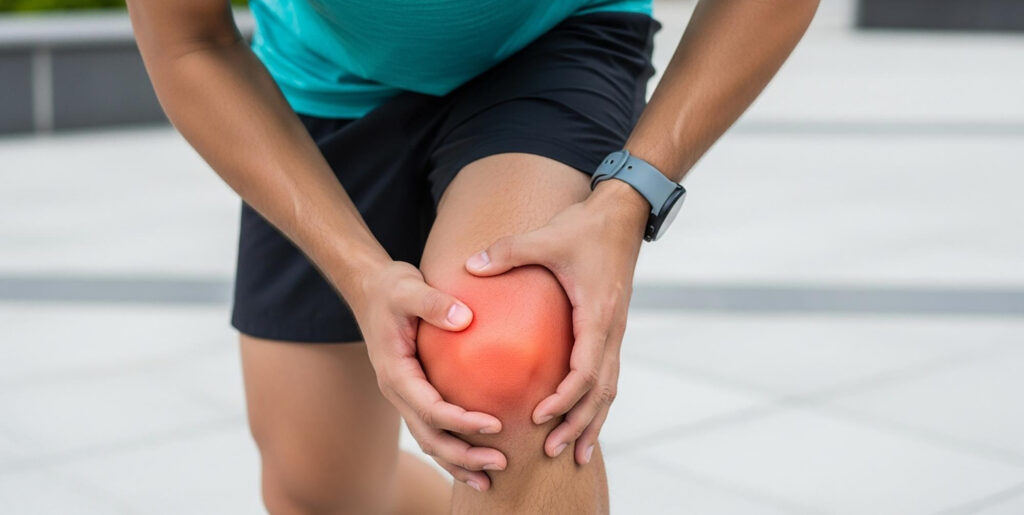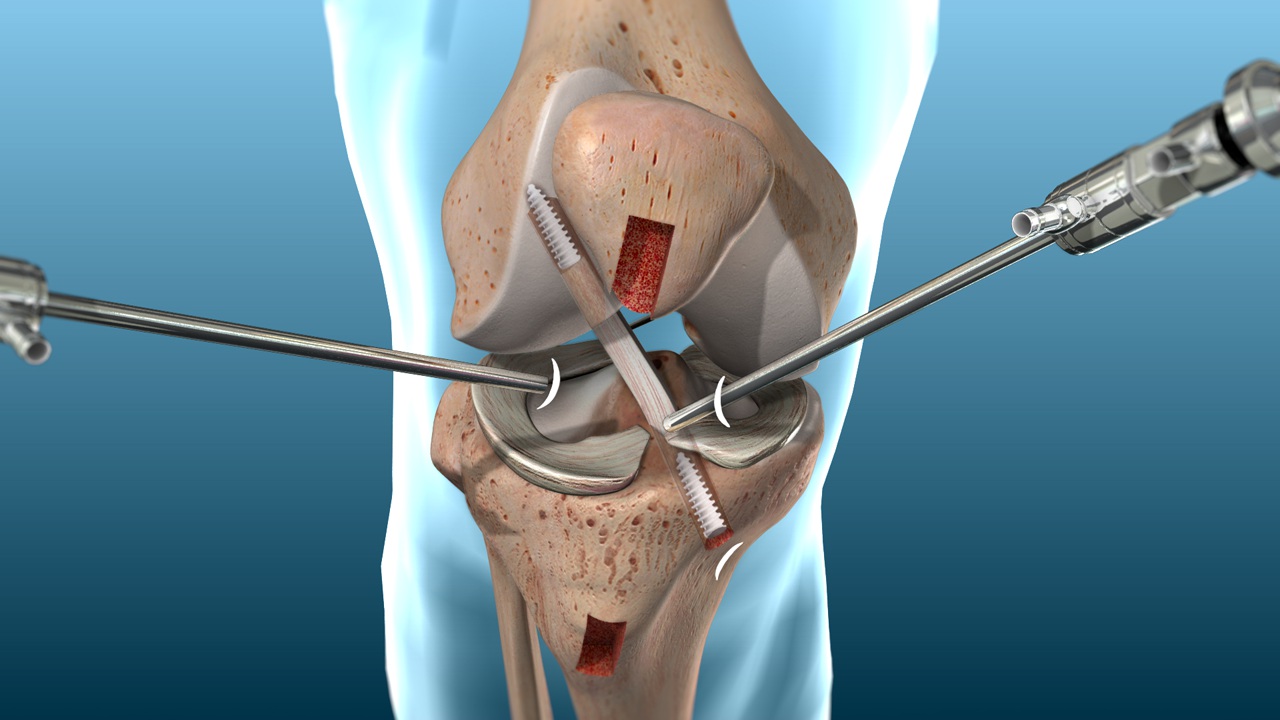Key Pointers:
- Understand what the ACL does and why it’s important for knee stability
- Learn when ACL reconstruction is recommended
- Know what happens during the procedure and what recovery involves
- Find out how physiotherapy supports long-term knee function
What Is the ACL and Why Does It Matter?
The Anterior Cruciate Ligament (ACL) is one of the key ligaments that stabilises your knee. It connects the thigh bone (femur) to the shin bone (tibia) and prevents the knee from sliding forward or twisting excessively.
ACL injuries are common among athletes and active individuals –especially in sports that involve sudden stops, pivoting, or jumping, such as football, basketball, or skiing. When the ACL tears, it doesn’t heal on its own and can make the knee feel unstable or “give way” during activity.
When Is ACL Reconstruction Surgery Recommended?
ACL reconstruction may be suggested if:
- You experience knee instability or frequent “giving way”
- You want to return to sports or physically demanding activities
- You have a combined injury involving other knee ligaments or cartilage
- Conservative treatments like physiotherapy haven’t restored stability
Your orthopaedic doctor will assess the extent of the injury through a clinical exam and imaging (usually an MRI) before recommending surgery.

How Does ACL Reconstruction Work?
During ACL reconstruction, the torn ligament is replaced with a graft. This graft can come from your own tissue (commonly the hamstring or patellar tendon) or from a donor.
The procedure is typically performed using arthroscopic (keyhole) techniques, involving small incisions and a tiny camera to guide the instruments. The graft is positioned to replicate the natural ACL and secured with specialised fixation devices.
This minimally invasive approach allows for less tissue disruption and typically a smoother recovery process.
What to Expect After ACL Reconstruction
Recovery is gradual and includes several key phases:
- First few weeks: Focus on reducing swelling, regaining motion, and walking with support.
- First 3 months: Begin strengthening exercises with guidance from a physiotherapist.
- 3–6 months: Progress to advanced exercises for balance and coordination.
- 6–9 months: Gradual return to sport-specific training once strength and stability are restored.
Most patients return to daily activities within a few weeks and resume sports within 6–9 months, depending on progress and adherence to rehabilitation.
Rehabilitation: The Key to Long-Term Success
Physiotherapy is a crucial part of ACL reconstruction recovery. It helps restore muscle strength, improve knee flexibility, and retrain movement patterns to prevent re-injury.
A structured rehabilitation plan tailored to your lifestyle and activity level can make a significant difference in achieving a full and confident recovery.
When to See an Orthopaedic Doctor
If your knee feels unstable after an injury, or if you hear a “pop” followed by swelling and pain, it’s important to get checked early. Proper diagnosis and timely management can help prevent further joint damage and cartilage wear.
Frequently Asked Questions (FAQ)
1. Can a torn ACL heal without surgery?
A complete ACL tear does not typically heal on its own. Mild or partial tears may improve with physiotherapy, but surgery is often needed for those who want to return to high-impact or pivoting sports.
2. How long does it take to recover from ACL reconstruction?
Most people can return to normal daily activities within 6–8 weeks. Sports or heavy physical activities usually resume after 6–9 months, depending on rehabilitation progress.
3. Is ACL reconstruction painful?
Some discomfort is normal after surgery, but pain is manageable with prescribed medication and physiotherapy. Minimally invasive techniques also help reduce recovery discomfort.
4. What are the risks of delaying ACL reconstruction?
Delaying treatment can lead to repeated knee instability, increasing the risk of meniscus tears and cartilage damage, which may contribute to early arthritis.
5. Will I regain full knee function after surgery?
With proper rehabilitation, most patients regain good knee stability and return to their preferred activities. Recovery outcomes vary depending on injury severity, graft type, and rehabilitation adherence.
Book a Consultation at Liberty Orthopaedic Clinic
If you’ve suffered a knee injury and suspect an ACL tear, early assessment can make a difference in recovery. Book an appointment with Dr Lee Eu Jin, Consultant Orthopaedic Surgeon at Liberty Orthopaedic Clinic, to discuss your condition and treatment options.
Our clinic provides patient-centred orthopaedic care, from diagnosis to surgical and non-surgical management of knee injuries.





